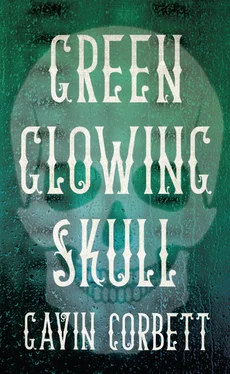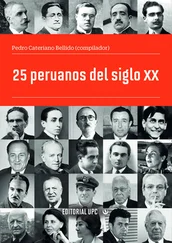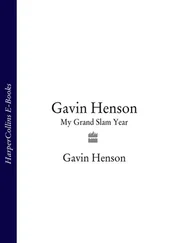There followed a heated conversation between the brothers in Old Irish, only a tiny fragment of which Denny could understand. Eventually, though, an amicable and indeed amusing consensus seemed to have been reached.
‘What are you so giddy about?’ said Denny, leaning in and wanting to join the fun.
‘I was just saying,’ said Jeremiah, ‘that you have a most unique voice.’
‘Oh dear,’ said Breffny, pressing a knuckle into a swollen wet eye. ‘Yes. You’ll be all right for this concert. Jeremiah will do a fine job for you.’
***
Denny went back to his apartment with the goblin men’s laughter ringing in his ears. It continued to bother him through the day. He did not like that these indeterminately young persons had cheeked him, their de facto employer, and he especially did not like that he had not had a plan in place.
Oh to hell with the idea, he thought. They would use this woman’s accompanist or they would sing unaccompanied: that was always the plan.
There was never a plan.
Drat it, Aisling.
He was alone again, in his living room, with no piano taking up space, no piano to walk around. An imprint, buffed at the edges, soaked wet in one corner, marked the site on the carpet.
‘Bit!’ he cried.
The brothers saw things more clearly than he did. Poor Jeremiah, Jeremiah who was so awesome and pitiful, he was not so pitiful that he could not speak the truth as he heard it. And he had heard it with his own ears: Denny could not sing above or below one note. Jeremiah might tell him which note. The D flat of the cuckoo. Worse — the gargle of the magpie.
Denny could not sing. He had a stone in his throat. He could not sing: say it loud, he said to himself. He was saying it, he thought. There is no one here to hear it.
‘Bit!’ he cried again.
That is saying it.
And so. The plan was.
Bitching heat.
‘Blasted heat!’
The plan had been.
Simply this. To sing again before his time ran out. To clear his throat of that stone. Not much more thought-through than that. He would enlist his friend, Clive. (Clive? Really?) And somebody else, the somebody else who happened to be the boy with the ill-fitting hemispheres for a head.
The plan: to see that stone on the floor, reddened and wrinkled. That would be swell.
Stuck there since the day she left him.
The irony being there had been such grand opera in their parting.
‘You will not survive on your own! You will die! I hope you die! If you think you can sing for your supper — well! You’ll never earn a penny! You’ve never had an ounce of talent! It was me who had all the talent! I was your “meal ticket”, Aisling! I curse that I ever met you! I curse that day!’
‘And I curse you!’ she had said. ‘I curse you!’
He drank ten bottles of porter that night, tried to sing for the boys in Mulligan’s. Nothing but pain for all. They patted him on the back, punched him in the stomach, told him to put it down to grief. It’s humours, toothless Billy assured him. Your bile is black from trauma, your throat is heavy with the weight. Humours or possibly tumours. Oh machree, machree, he said. Make it go away. It never went away. She haunted him, always and still, did Aisling.
Did Aisling.
It meant vision, it meant spectre.
Too painful, too painful.
His little cornflour rabbit. He would feel the smoothness of her cheek with his finger. If only she had come to America with him and she would have been his little malted milk ball, his little malted milk ball.
Aisling that meant ‘vision’, as every Irish schoolboy knew. The spectre of Mother Ireland whose appearance heralded a revival in fortunes.
O!
And what a vision she had been when he first saw her!
Eyes, two eyes in a room. Sleepy kind eyes behind mother-of-pearl lids. In a neat, somewhat ‘Continental’, face. A prim, laterally, but full, longitudinally, set of lips. Straight feet. Small figure, but sharply outlined. She would be up to no further than his chin, which was important. By far the best he had seen in a long while.
He saw her first one Saturday afternoon while standing in a cold and bright and echoey hall. Vehicles passed in the near distance. The shouts of some corner boys came from over the wall outside. Easy to know the ones who will die young and those who drink their milk, he thought. Many thoughts came to him. Thirty expectant faces stared at his. She was wearing a green woollen suit; he was wearing a waistcoat that was intended to look serious. This was an intermediate and uncertain time in his life. He had a foretelling of the seizure to come when he found he could not summon a note. It is possible, he thought, that many of these young men and women, many the same age as myself and many attendees or recent graduates of the university, have heard of the ignominy of the months before in the pages of their College Tribune .
But all he had to do was look at those kind encouraging eyes and he felt a flap of feathers in his heart. He realised that the terror that had seemed to go on for an hour must only have filled him for a second. Suddenly everything was well. And he sang, eventually, like a nightingale. He sang ‘Claim Me in Spring’.
This was a time in Ireland when you married the first girl that you met and loved.
***
As agreed, following his performance Missus Dwyer, the choral-society president, asked him questions in front of the group. They were very searching questions. Evidently she had got her mitts on that copy of the College Tribune that carried the story of his defeat and embarrassment in Italy.
‘Well we knew you would be good and aren’t you “the business”. But tell us now about your time in Milano with Silvio Tosi. Did he find that there were limits to what he could teach the Irish tenor? We are not at cellular level so “hot” on the high B flats, are we? I’m told it’s to do with the positioning of our clavicles in relation to the ribs around the other side. The audiences in those opera houses in the small towns really “know their stuff” I have heard.’
‘They are demanding people, but they are not wealthy people, so they are naturally demanding,’ said Denny.
‘They let their feelings be known, to the debutante as well as to the singer of many years’ experience, if they don’t like what they hear, isn’t that true?’
‘I don’t know about that, Missus Dwyer.’
He looked back at the girl in the green suit and found that her sleepy eyes continued to show encouragement and also a curious tolerance. It gave him the strength not only to carry on under this line of questioning but to not be afraid of speaking about his failings.
‘No, no, I mean to say, indeed they do, Missus Dwyer. And the same audience does not give you a second chance. Well — there are some regional opera houses that might give the beginner a fresh start, it’s true, but by that stage Maestro Tosi had already decided that an opera career was not for me.’
He said all of this with his eyes fixed on the girl.
‘Are you determined now to prove that his judgement was wrong?’ said Missus Dwyer.
‘No I am not,’ said Denny. ‘Don’t you know what pride comes before, Missus Dwyer? I will never enter that world again. I will make my name instead as a singer of the type of ballad I have just sung for you. I see myself very much of that world instead. It is a world more humble and in almost every way more honest than that of Italian opera. Give me the moon rising over Gougane Barra over the sun setting on Sorrento Bay any day, Missus Dwyer!’
‘Such an interesting and novel and sentimental outlook, Mister Logan.’
‘Let me tell you a piece of bunk that Maestro Tosi once told me.’
Warming now to his oratory, he made sure the eye-to-eye connection with the girl was firm and unmistakable.
Читать дальше
Конец ознакомительного отрывка
Купить книгу












